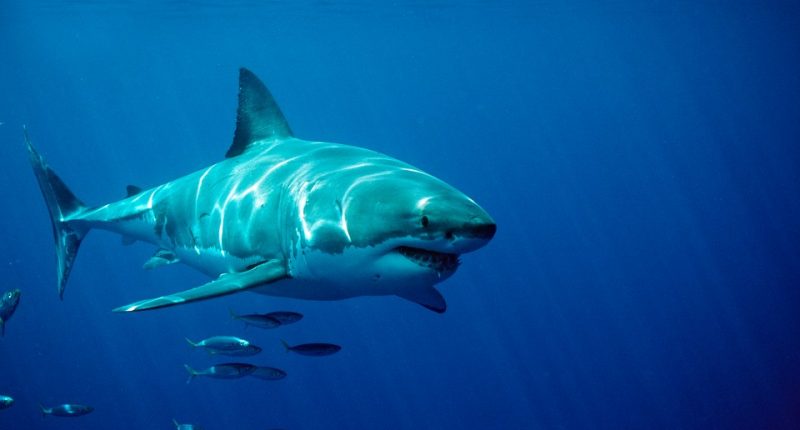Share this @internewscast.com
THE biggest shark ever tagged by researchers has been spotted prowling up the US east coast.
Known as ‘The Contender’, the massive white shark is currently skulking around the North Carolina coast.
The behemoth was previously seen following the Gulf Stream south near Florida.
Weighing 1,600 pounds, the beast was first tagged on January 17 this year about 45 miles off the Florida-Georgia border.
It was the largest ever shark tagged by research group OCEARCH in the area.
Contender, an adult white shark, measures 13 feet and nine inches.
Initially, Contender remained in familiar territory during the initial weeks of its adventure, staying close to the vicinity of the Florida coastline.
Scientists track its progress through a tag that “pings” every time the shark’s fin breaks the water’s surface.
OCEARCH said the fin needs to be above water for around 90 seconds for the location to be fully accurate.
The website states: “The SPOT tag attached to Contender will offer crucial real-time data for around five years. This will assist us in monitoring his movements and gaining insight into his migration habits.”
Despite Contender’s voyage trending south from January through to March, the latest pings have show the beast much further north.
The shark didn’t emerge for a ping between March 12 and April 8, during which time it had made its way nearer to coastal North Carolina.
Contender has travelled more than 1,400 miles over the past 109 days.
Since emerging near North Carolina, the shark has been prowling up and down the state’s coastal waters.
But beachgoers need not panic, as Contender has kept well clear of the shore so far.
The most recent ping on May 5 had the shark heading southwards in the vague direction of Onslow Bay.
OCEARCH’s website describes Contender as “the ultimate ocean warrior” and a “mature male” specimen.
It also says his nickname comes in honour of Contender Boats – an old partner of the research group.
Sharks will tend to head north and further out to sea during the spring and summer months, according to biologists.
A good supply of seals off the northeast US and Canada, makes it a popular destination for sharks.



















